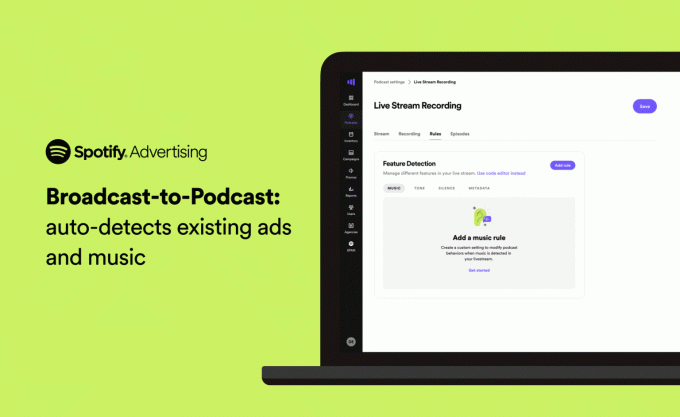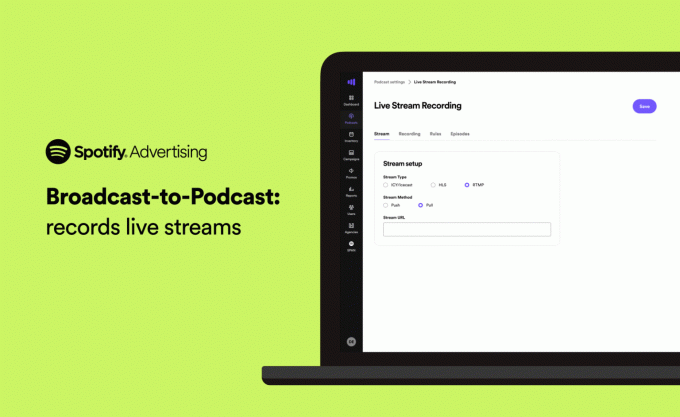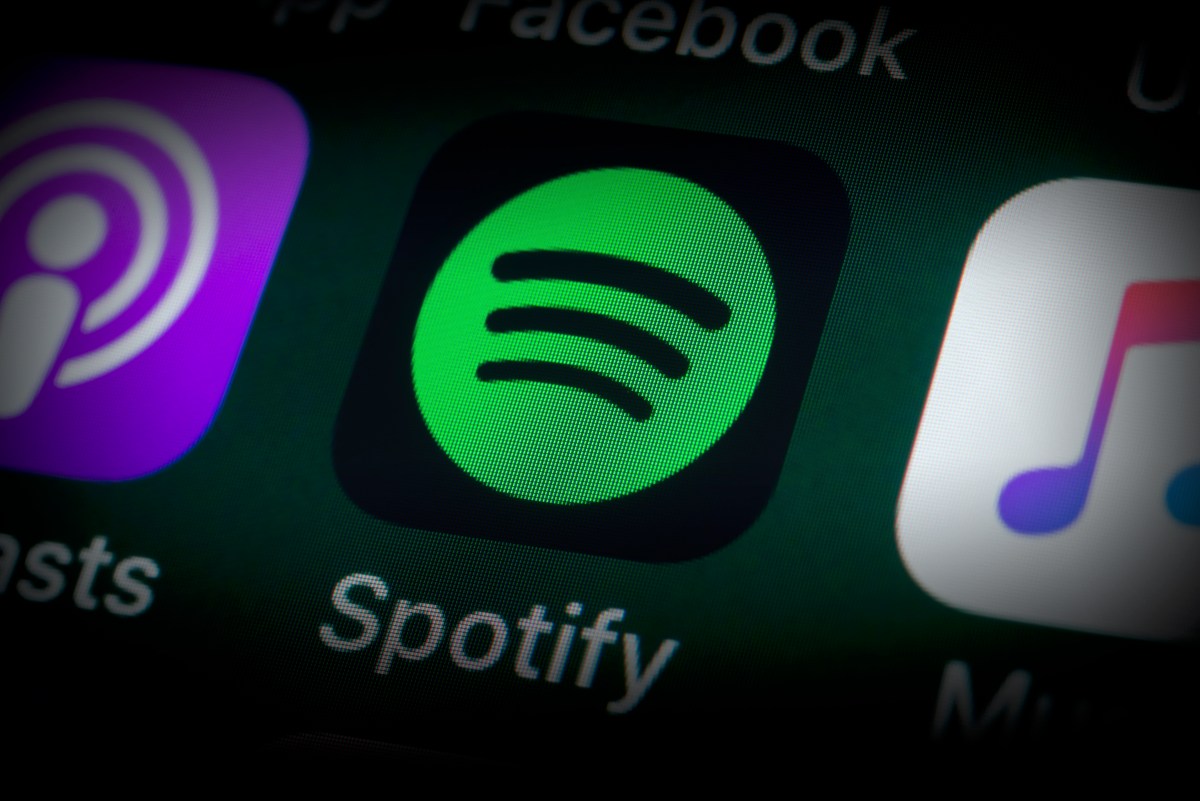Spotify today is introducing new technology that will give radio broadcasters the ability to turn their existing audio content into podcasts, or what it’s calling “broadcast-to-podcast.” Based on IP Spotify acquired in late 2021 from an Australia-based podcast tech company Whooshkaa, the feature set will be integrated into Spotify’s enterprise podcast tech platform Megaphone, where it’s already being used by Fox Audio Network and other clients.
The streamer explains the technology enables broadcasters to reach new audiences amid the shift to streaming audio, which may now be impacting their listenership. According to data from an Edison Research report for Q3 2022, the time spent listening to broadcast radio online grew by 50% between 2019 and 2022, Spotify noted, as more consumers tune in via their digital devices.
To some extent, those increases may have been prompted by the Covid-19 pandemic which saw more people working from home and spending less time commuting to and from the office. But it’s also related to a general shift in how consumers want to listen to audio programming, as podcasts have grown in popularity as an alternative to radio broadcast shows. As the data shows, much of the jump took place even before pandemic lockdowns, with station streams growing from 8% to 11% between 2019 and 2020, for instance, before jumping another point to 12% in 2022.

Image Credits: Spotify
In addition, citing data from Pew Research, Spotify suggests its new product allows for a better way to reach a younger, Gen Z audience who now prefers to get their news through digital channels like podcasts.
Plus, Spotify pointed to eMarketer projections for podcast ad spending, which it forecast to reach nearly $2.2 billion in 2023 as another reason why broadcasters should consider how they can repurpose their audio for podcast listeners.
Of course, the real end goal for Spotify is to gain access to more audio programming without having to negotiate expensive exclusivity deals with podcast studios and individual podcasters, as it’s done in the past with figures like Joe Rogan, Alex Cooper, and others. And once in its system, the broadcast audio can be monetized with ads, just like any other podcast.
Spotify explains the tech will automatically identify proper ad market locations within the imported audio after a one-time setup process completes. Traditionally, converting a broadcast program to a podcast through manual methods would have taken publishing teams 30 to 60 minutes to complete per episode, Spotify claims, including downloading the episode from their radio platform, removing the ad spots, placing new ad markers, then re-uploading it to a podcast platform.
At the scale of a broadcaster publisher dealing with hundreds of episodes per day across a larger network, this manual process isn’t feasible.
With its Megaphone platform, Spotify’s clients can now choose to use the automatically identified ad marker locations to save time, or they can choose to remove them or replace them with their own. This allows the client to monetize with dynamically re-inserted ads. Publishers can tap into Spotify Audience Network to help them monetize any unsold inventory.

Image Credits: Spotify
“The way listeners engage with audio is constantly changing and we know that digital audio is increasingly becoming their preferred way to listen, especially Gen Z,” said Emma Vaughn, Spotify’s Global Head of Advertising Business Development & Partnerships, in a statement about the launch. In a blog post, the executive also noted that of Spotify’s 500 million users, it also reaches more than 50% of Gen Z and millennial users in the U.S.
“With this new broadcast–to-podcast feature, we’re empowering radio publishers to reach existing audiences throughout their day, but to connect with new, younger audiences,” Vaughn added.
